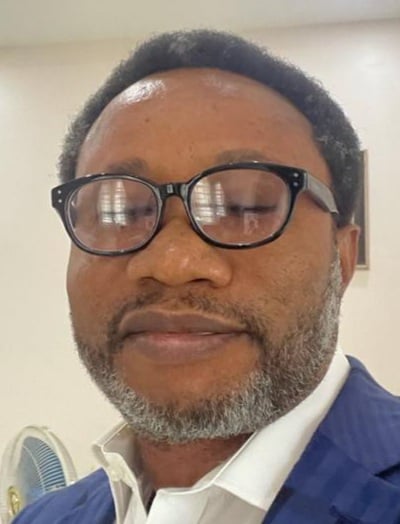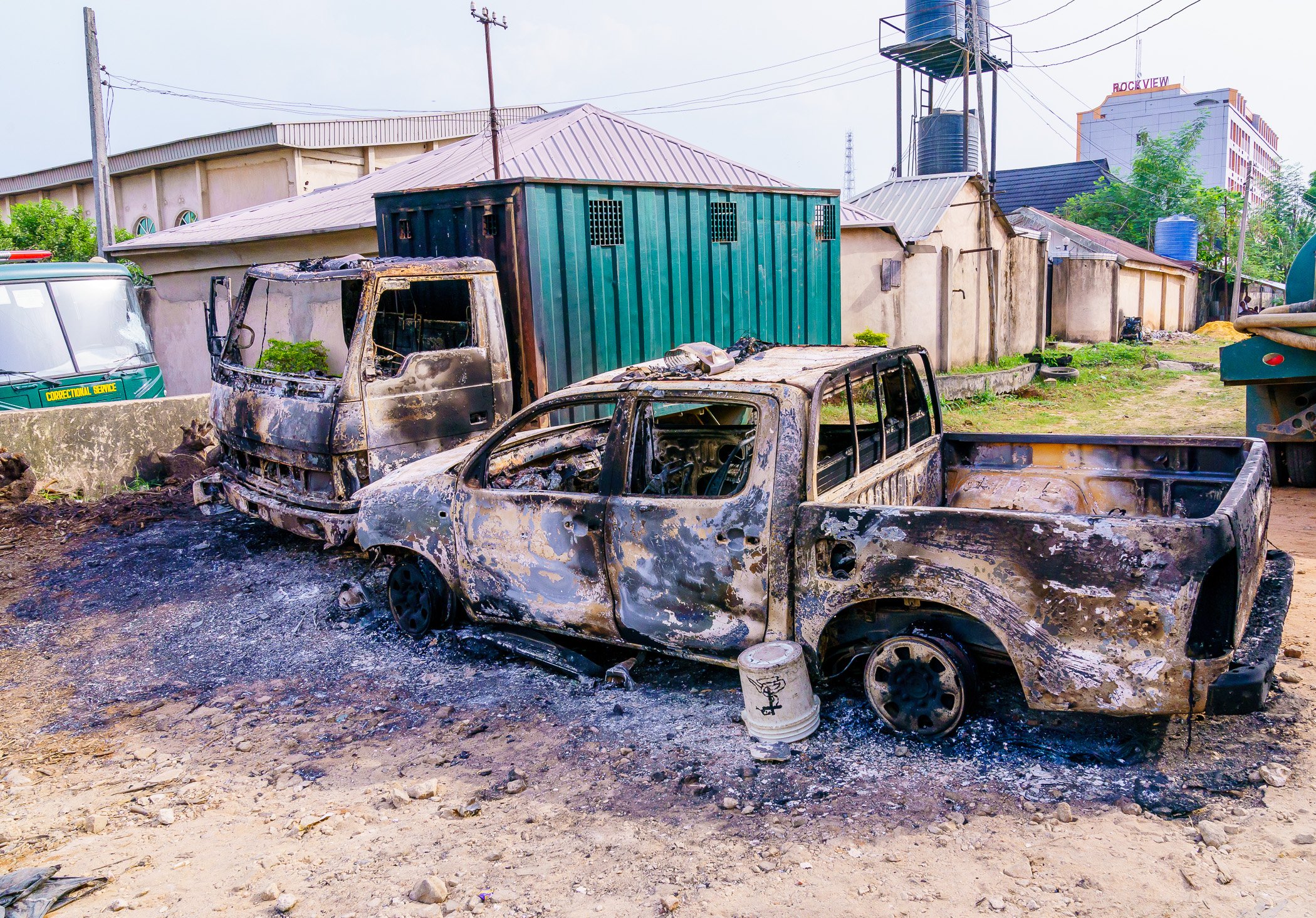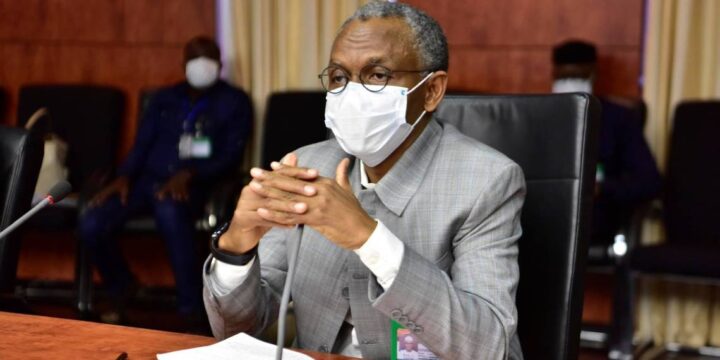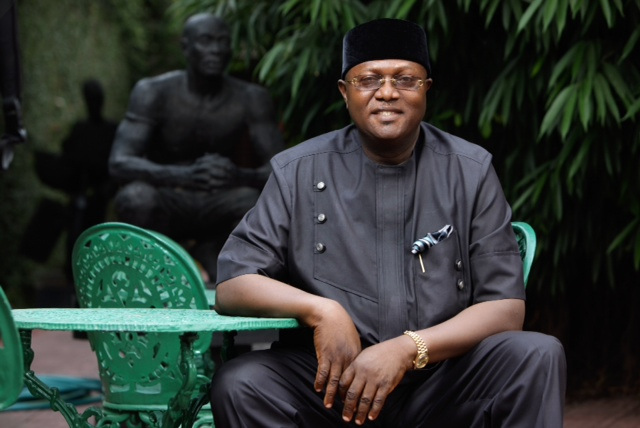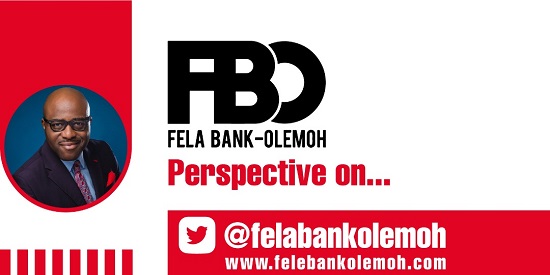At a time of growing global uncertainty and distress induced by the pangs of a pandemic, the biggest challenge tugging at the soul of Nigeria today is the nightmare of worsening insecurity across the country. Insecurity now forms our national daily diet of unpalatable news. It is the big elephant in the room. It stares us right in the face everywhere we turn: north, south, east and west. And it casts a palpable pall of panic over the very air we breathe. There is a growing consensus that nowhere in the country could be considered safe anymore, as a nation that is already buffeted by a legion of other problems reels from the multi-faceted insecurity conundrum.
When it rains, it pours; so goes a popular idiom. Our security condition is analogous to a deluge of rain, lightning, thunder and hurricanes blasting at us. From rampant kidnapping of students and adults, ferocious banditry, mindless killings, to relentless attacks on security architectures, unabated Boko Haram terrorism, armed robbery and killer herdsmen on rampage, we never had it so bad in Nigeria. And just when we thought we had seen it all, there was recent news of an armed robbery attempt in Aso Rock, Nigeria’s seat of power! Many Nigerians are asking: if Aso Rock is not even safe, where else in the country is secure?
Indeed, the answer flies in the wind. We are caught in an unprecedented dilemma. What the Nigerian situation portends today is what some analysts have described as a state of war. In a sense, the nation is at war with its own internal terrorists in various guises. It is no wonder that the 2020 Global Terrorism Index that was
released recently, ranked Nigeria as the third most terrorized country in the world. According to the report, five out of ten ranked countries are classified as being in a state of war. The five countries include Afghanistan, Nigeria, Syria, Somalia and Yemen. This shocking classification of Nigeria among such rogue, war-torn countries as Syria, Afghanistan, Somalia and Yemen is simply unacceptable and embarrassing, yet it is an undeniable reality.
Advertisement
What is even more worrisome now is that, as the security blight gets worse by the day, the Federal Government seems to be overwhelmed and has no clues to an effective permanent solution despite convening countless security meetings.
Are the bandits, terrorists, kidnappers, robbers, murderers and unknown gunmen that roam the country and strike at will now unstoppable? Will Nigerians now continue to live like refugees in their own country, afraid to go out or travel across country for fear of being abducted or killed? No, this situation cannot and must not persist. The government needs to rouse from its alleged soporific lethargy and act fast. We need decisive solutions to the insecurity in order to stem the slide towards ominous implosion and douse the cries for the breakup of the nation.
However, if the insufferable hell of insecurity we are in is not quenched on time, there will be dire consequences. Are all stakeholders reading the handwriting on the wall? The aftershocks of this volcanic eruption of nationwide crime, violence, terrorism and bloodletting will unsettle Nigeria and Nigerians in diverse ways. More metaphorically, the seeds of insecurity being wildly sown in the land now will be bearing more bitter fruits next year, in 2023 and even in the years to come.
Advertisement
One aftermath of the persisting insecurity nightmare will be the economic deterioration of the country from next year. Since late last year, the country has been suffering from the disruptive complications of the global pandemic that induced a second recession in less than six years of President Muhammadu Buhari’s administration. Already, there is a rising inflation that is affecting the economy, as the costs of living spiral out of control. According to the National Bureau of Statistics (NBS), the rate of inflation in Nigeria, termed ‘stagflation’, hit a four-year peak in February this year as food prices soared more than 20%, thus inducing financial pressure on households. If our security situation is not checked, inflation pressures will most certainly get higher next year.
Meanwhile, the government’s revenue too is dwindling and many states are also finding it hard to pay the minimum wage. With the deteriorating insecurity disrupting economic activities across the country, Nigeria will see a further dip in direct investments, as investors will prefer to stay away from Nigeria’s volatile financial markets. And if there are no more local and foreign investment inflows, economic growth will contract and unemployment will increase!
Directly related to the issue of economic fallout of rising insecurity is the challenge of food security. In a situation where staples such as bread, cereals, potatoes and fruits drive the increase in the food price index, according to NBS, the impact of an unchecked insecurity situation on the agricultural sector can only make matters worse for Nigeria in the year ahead. As Boko Haram terrorists and Fulani herders continue to attack farmers and destroy farms in the North, Middle Belt and Southwest regions of Nigeria, their activities disrupt agricultural output and the result can only be food insecurity in the future! In fact, the Nigeria Situation Report 2021 on Relief Web confirmed that up to 5.1 million people “risk being critically food insecure between June and August 2021.” With the increasing turbulence in our major agricultural hubs across the country, the reality of food insecurity will be grimmer in the year ahead.
There are other areas of our national life that will take a hit from the impact of ongoing acute insecurity, if left to fester. If more schools are raided by bandits and more students are abducted, the education sector will suffer a relapse to backwardness in the years ahead. More students will drop out of school and compound the already abysmal youth joblessness rates. Going further, the vibrant tourism industry in Nigeria will as well be negatively affected as the widespread violence, kidnappings and killings keep disrupting human mobility nationwide. Yet, tourism is a huge revenue earner and creator of job opportunities in any economy. But, how would tourists come when lives and property are not safe in the country?
Advertisement
But most importantly, the aftershocks of our current dire security state could also upset the electoral journey of smooth transition towards a new government in 2023. With almost 22 years of return to civilian rule in Nigeria, our democracy is still fragile. Insecurity is a major threat to any democracy, let alone a fragile one. It would be recalled that the Independent National Electoral Commission (INEC) on April 28 this year announced the date for the 2023 General Election. According to the INEC chairman, “By the principle established by the Commission, the 2023 General Election will hold on Saturday 18th February 2023 which is exactly one year from today.” The critical question here is that how could we hold free and fair elections in the midst of pervasive insecurity? The road to 2023 will make for a bumpy ride if the government does not act fast on the spate of security breaches confronting the nation.
All said, no matter how we cut the insecurity cheese, the knife is in the hands of the Federal Government to find a solution. It is not in the hands of foreign advanced nations to come and solve our internal security crisis for us. In any modern democracy, the security of lives and property is the first and most cardinal responsibility of a government towards its citizens. So, what the Nigerian government should deploy immediately is the political will and a sense of urgency to deal with the unprecedented insecurity in the land.
President Muhammadu Buhari must promptly do away with his perceived indifference to the security challenges, by directly addressing the nation, fostering national unity with his body language, acting more than talking, and rallying all stakeholders towards inclusive, sustainable solutions. If the president does not want things to fall apart totally on his watch and he still desires the verdict of history to be kind to him after leaving office, the time to act had better be now. The security of lives and property is the most singular inviolable debt he owes Nigerians.
Olabode can be reached at [email protected]
Advertisement
Views expressed by contributors are strictly personal and not of TheCable.
